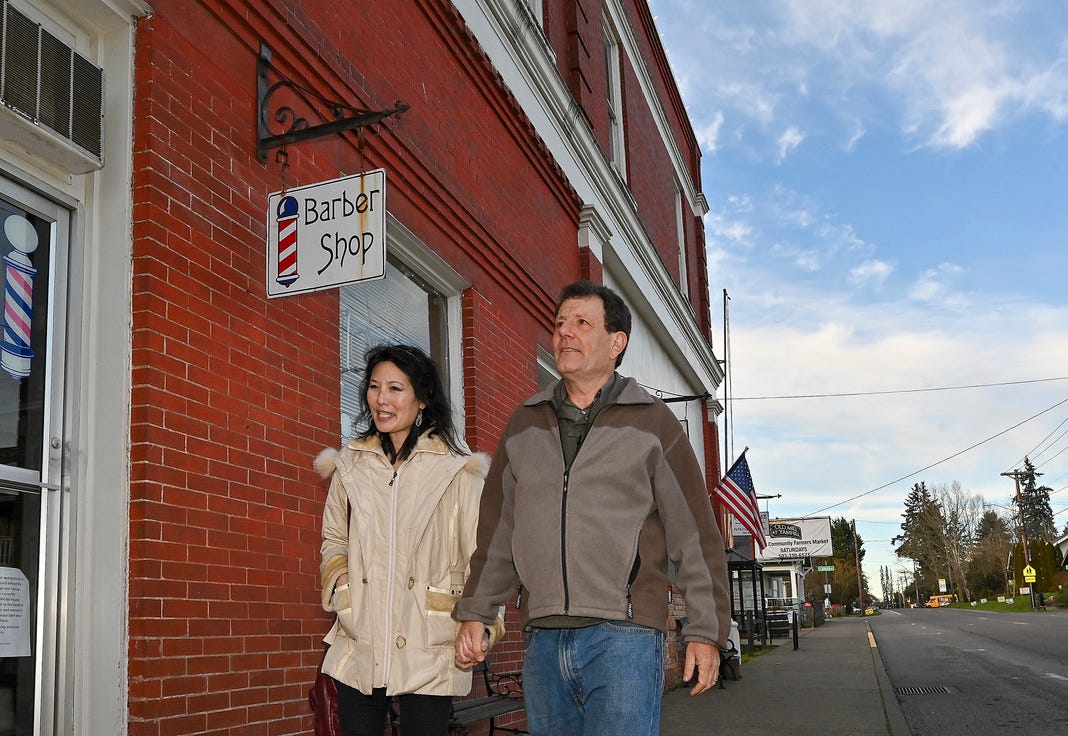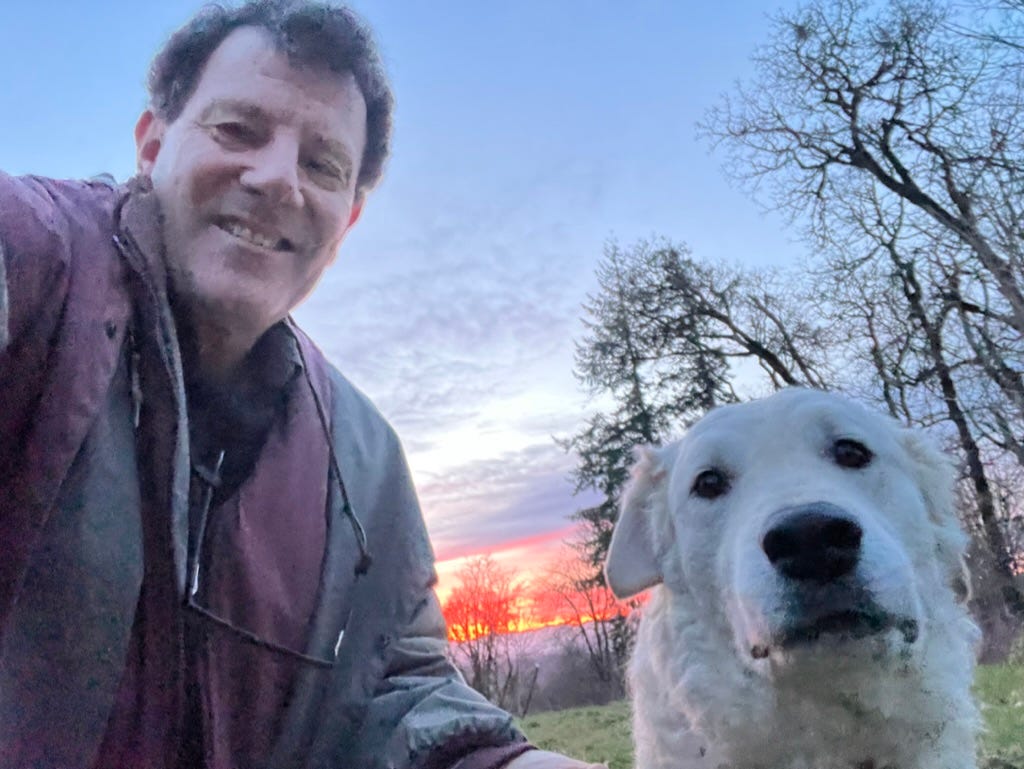While I was campaigning on the Oregon coast recently, before my political career imploded, I learned of a woman working at a major supermarket there but still unable to afford the soaring rents. So for the last year, she has lived out of her car in Lincoln City — even though she uses a colostomy bag.
I’ve been thinking of that woman as I’ve received a torrent of lovely sympathetic messages about the Oregon supreme court’s decision ending my campaign. (If you haven’t heard, the court ruled that the secretary of state was within her rights to conclude that I didn’t meet the residency requirement to run for governor.)
I’m disappointed of course, and I feel terrible for my wonderful campaign staff and for thousands of supporters: I let them down. But the upside of a career covering war, genocide and famine is that it lends perspective on one’s own petty disappointments. I’m going to be just fine, while that woman in Lincoln City is still going to be living out of her car with her colostomy bag.
So what can we do for her and people like her all over Oregon (and all over the country, for that matter)? I don’t know, and I’m still sorting out what I’ll do for my next chapter, but I’ll continue to find some way to make a difference here in Oregon.
One of the lessons for me in campaigning around the state is how serious the governance failures have been, and how widespread they are. We all know that Portland has a terrible homelessness problem, but I also ran into homelessness in communities all across the state (and I’ve had two friends, Stacey and Mike, die while homeless in the little town of McMinnville).
So many of these problems seem intertwined. We have dismal educational outcomes (Oregon ranks one behind Mississippi in K-12 outcomes), but that’s in part because 22,000 kids in the state are homeless and because we have the highest reported rate of drug use and the lowest rate of treatment — and a huge undersupply of housing. And then weak educational outcomes lead people to self-medicate and the cycle repeats.
I deeply care for a family that I’ve known for three generations — smart, hard-working people, yet also a family enmeshed in alcoholism and drugs and educational failure. And now a young woman in the family is using heroin and meth and is four months pregnant, and that baby will arrive going through opioid withdrawal and facing steep challenges. We have to break these cycles, and that requires intensive case management — which too often doesn’t happen.
Too often the impulse is to respond to problems with soundbites rather than solutions. We say “housing is a human right,” but that doesn’t actually get anyone housed. Good intentions are not enough; the metric of progressivism must be actual progress.
Yet if one of the things I’ve seen in my campaign is how deeply rooted the problems are, another takeaway is that we can make progress. I retain my hopefulness. For example, Oregon has a first-rate program called Relief Nurseries that helps pregnant women and new moms deal with challenges of poverty, mental health and addiction. It’s a first-rate program that can and should be scaled up. The same is true of programs like Square One Villages that deal with homelessness, or Provoking Hope that tackle addiction.
Likewise, I’ve spent decades reporting on gun violence, and there are ways to reduce it. Nothing works perfectly, but there are steps that mitigate the carnage. Even something as simple as following Wyoming in setting the age to purchase a handgun at 21 (it’s 18 in Oregon) makes a difference, because 18 to 21-year-olds are particularly prone to misuse a firearm.
So with vision and leadership, I think we can make real progress. And Oregon’s problems are to some extent mirrored in California and Washington. If one of these West coast states can tackle these problems and make real progress, then I think we’ll see a path forward for all of them. We’re in a tough spot, but we can get out of it.
It was interesting seeing journalism from another perspective, that of a candidate, and I wish less coverage focused on the horse race and on candidates sniping at each other, and more on these underlying issues — and possible solutions.
On Thursday morning I was driving to the campaign office with my wife, Sheryl, expecting the supreme court to declare I was eligible to run (that’s what most of the legal community anticipated). Then the phone rang. It was our outstanding lawyer, Misha Isaak, saying we had lost the case. That deflated us, and that’s an understatement.
(We can say is that in my entire political career, not a single voter ever voted against me in an election!)
We parked near the office, knowing the campaign was over, and walked near a sea of tents of people who are homeless before entering the cocoon of the office and greeting a mourning staff.
I keep thinking of those people who lacked homes; I will bounce back, but they may not — and the 22,000 Oregon children who are homeless carry special traumas, with girls sometimes pushed to trade sex for shelter. I would like to think that I had policies that could have helped people who are homeless, although I suppose that all candidates say that. In any case, while I’ll be fine, they won’t be. That woman living in a car with a colostomy bag, even though she has a job, won’t be fine either.
We have to figure out how to make politics the art of problem-solving. That’s what I hoped to do as governor, but now I’ll have to find another approach to ply my problem solving. And thanks to all of you: I so appreciate your warm wishes.






You write "... I feel terrible for my wonderful campaign staff and for thousands of supporters: I let them down." No, you didn't let us down. You provided a breath of fresh air, and showed us what could be as compared to what is. Hopefully, you'll try again, and maybe this time we'll be able to actually create a new and better Oregon.
Don't give up! You have such compassion and desire to make this better that you need (we need) you to find another way of improving things for Oregon. Write a column for The Oregonian and other newspapers in the state, the few that are left. Go on a speaking tour and get more citizens to buy into your ideas. Run for Yamhill County Commissioner or for the local school board, provided your residency requirements will be okay. Keep traveling around the state and talking to people. Establish your residence and run again for Governor!